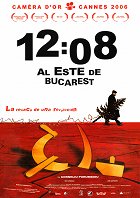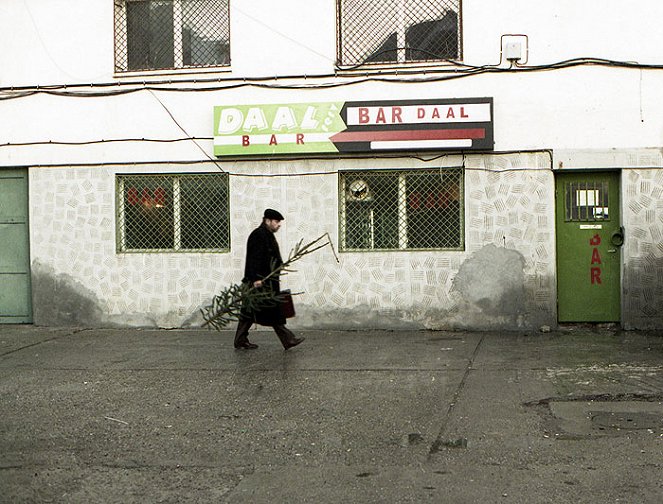Director:
Corneliu PorumboiuGuión:
Corneliu PorumboiuCámara:
Marius PanduruReparto:
Mircea Andreescu, Teodor Corban, Ion Sapdaru, Coca Bloos, Luminița Gheorghiu, Lucian IftimeSinopsis(1)
El país entero observó en directo en televisión como las enfadadas multitudes forzaban al dictador Rumano Ceaucescu a huir de Bucarest en helicóptero. En un tranquilo pueblo al este de la capital, dieciséis años después de ese histórico día, el dueño del canal local de televisión ofrece a dos invitados compartir sus momentos de gloria revolucionaria. Uno es un viejo retirado y eventual Santa Claus, el otro un profesor de historia que acaba de gastarse el sueldo completo en saldar sus deudas de bebida. Juntos recordarán el día en que tomaron por asalto el Ayuntamiento a los gritos de "Abajo Ceaucescu". Pero los telespectadores que llaman por teléfono cuestionan las reclamaciones de los héroes, que bien podrían haber estado emborrachándose en el bar local o haciendo preparativos navideños en lugar de rebelarse en las calles. (Festival Films)
(más)Reseñas (2)
Searching for the essence of the past in the present as a farce about three suffering heads. Was or was there not a revolution at 12:08 east of Bucharest? Do the lamps light up suddenly or gradually? The first comedic half wrapped in the Porumboiu lethargy of a television debate, in which three actors revolve in a circle of helplessness, insults and their own narratives. It would be fun if it wasn't so accurate in terms of post-soc societies. (It should be mandatory to screen this film once a day in the Institute for the Study of Totalitarian Regimes instead of the morning anthem)
()
I will not give this film five stars, despite my great regret, because the form somewhat lags behind the content and the first half of the film drags a bit despite its reasonable length and needlessly dissects the unflattering mundane existence of the story's protagonists. However, the second half, which takes place on television during a live talk show, is great and, in my opinion, the most accurate portrayal of the reality of a generation that experienced the fall of the communist regime and the subsequent disillusionment with the post-revolutionary situation. It experienced it quite rightly, because the actions of the elites are merely a result of the overall state of society, and changes in thinking are much harder than formal changes of the regime. The elites are no better or worse than the rest of society and they only do what those below them allow them to do. The television debate addresses whether a revolution took place in a provincial town east of Bucharest or if the locals just passively waited for the fall of power in the capital. As is known, human memory operates selectively and people tend to adjust their biography to the point where they eventually believe it themselves. Confrontation with reality, or rather with the perception of their peers, can result in a geyser of tragicomic outbursts that reveal the opportunism and adaptability of our heroes. The humor style, which revels in the awkwardness and pettiness of the film's characters, is quite different than that seen elsewhere in countries that experienced something similar. Overall impression: 85%.
()

